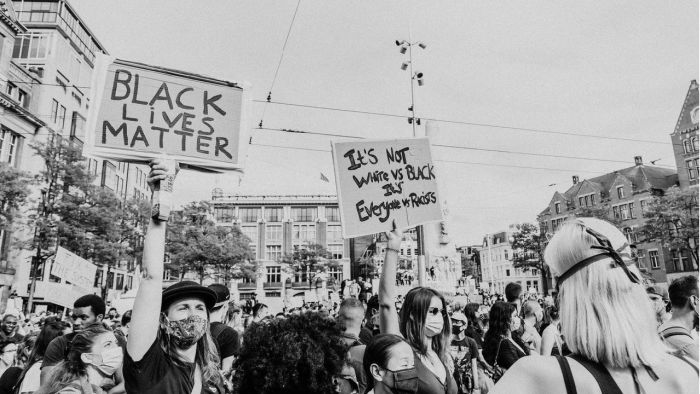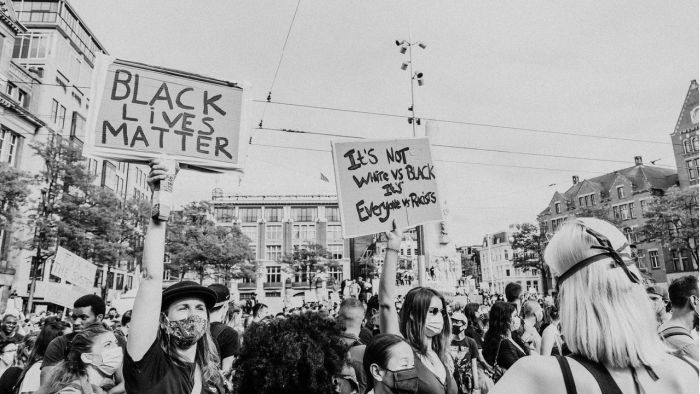Protests are an opportunity to hear from the powerless. They aren’t a problem that needs to be fixed.

The Playbook
- An unarmed civilian is shot by police.
- Outrage bubbles up. Then spills over.
- Then protests.
- Police move to violently shut down the protests.
- Protests become more violent.
- The Mayor calls in the National Guard.
The reason this pattern is so predictable is because it has become incredibly common. This is the playbook. But why?
One reason is that it keeps happening. So leaders don’t just look at the problem, they look for known solutions. They prefer known solutions, even if they are ineffective. This is crazy.
Most people believe that known solutions that are ineffective but sound good are justifiable. We are forgiving of bad results when they are common, expected, and well-intentioned.
Leaders are scared of unknown solutions, even when they have a much higher probability of success. And almost more so when justified by better intentions! Expertly crafted plans for de-escalating conflict built on hard evidence is treated as risky by mayors staring at prototypical unrest.
The problem, however, isn’t so much that mayors and police chiefs are playing off of a flawed playbook.
They think the protest itself is a problem.
And what do we do with problems?
We try to fix them.
This distorts how we come to understand what is happening in our communities and how leaders are supposed to deal with them.
Imagine watching a movie with your children, not realizing it has a frightening scene in it. Your youngest child wakes up in the middle of the night with a nightmare. She crawls into bed with you, but is restless, so you put her back in her own bed. The next morning she hardly eats any breakfast. That same day, you get an email from your daughter’s teacher that your daughter was bullying a classmate. Two days later, you get a call from the principal about your daughter’s behavior. You pick her up and ground her. All next week, she keeps getting in trouble and you keep giving her more punishments until you feel like you’re about to snap.
What exactly is the problem? It would be easy to focus on the disruptive behavior. Precisely because we perceive it as disruptive. It is the one part we feel we need to deal with. But all of our attempts to curb the behavior with punishment lead to increasingly disruptive results.
Now we’re in a moral bind. We can’t be seen as tolerating behavior we think is bad. And yet our attempts to change it fail, or more accurately, seem to make the problem worse. Is the right thing to escalate further to account for our zero tolerance policy? Or do we change strategies to get better results?
There isn’t one problem needing to be solved.
Treating the presenting issue like a singular problem that must be solved is our most common leadership mistake. We fixate on specific details and are drawn to fix the biggest problem. In part because it is the most painful. But also because it feels like we’re doing something about it.
In the parenting scenario, we focus on the behavior and not what is causing that behavior. In matters of civil unrest and protest, people fixate on the limited options befalling the mayor in the middle of a nightmare. We think this humanizes the situation, because we are being sympathetic with the leader. But it does the opposite. It essentializes the options and relieves the leader of responsibility for her role in the situation.
The Protest isn’t the problem.
Even civil unrest isn’t the problem.
When police are not held accountable by their superiors, we are already living in a lawless society. That’s a problem.
Isolating the protest as The Problem while ignoring all of the other problematic factors is a problem.
A civil population whose cries for justice are ignored is a problem.
Militarizing the police is a problem.
Feckless laws and disproportionate punishment is a problem.
Extrajudicial killings is a problem.
Tolerating white supremacy is a problem.
Using chemical weapons and military crowd control tactics on your neighbors is a problem.
Refusing to use evidence-based de-escalation is a problem.
Seeing your own neighbors as an enemy to defeat is a problem.
Encouraging police to be afraid while giving special privileges to them when they are is a problem.
Using non-lethal weapons to intentionally injure protestors is a problem.
Allowing qualified immunity to excuse brutality is a problem.
Pretending new laws intended to protect civilians and bring accountability cannot be passed is a problem.
Feeling that there are no solutions to all of this is a problem.
By isolating protest as The Problem, we don’t only ignore the other problems. We make the most objectionable solutions seem necessary. It makes it feel simple. Like we’ve got this pain and we want it to go away. But the solution enflames the problem. These tactics aren’t a bandaid, they’re salt. If making the pain go away is the point, they make it worse.
But the point shouldn’t be making the pain go away. It should be making a better community. The playbook doesn’t do either.
Sticking by the old playbook in spite of the evidence, for any reason, especially politics, is absurd. It’s a doctor making a house call for your COVID and prescribing leaches and bloodletting.
